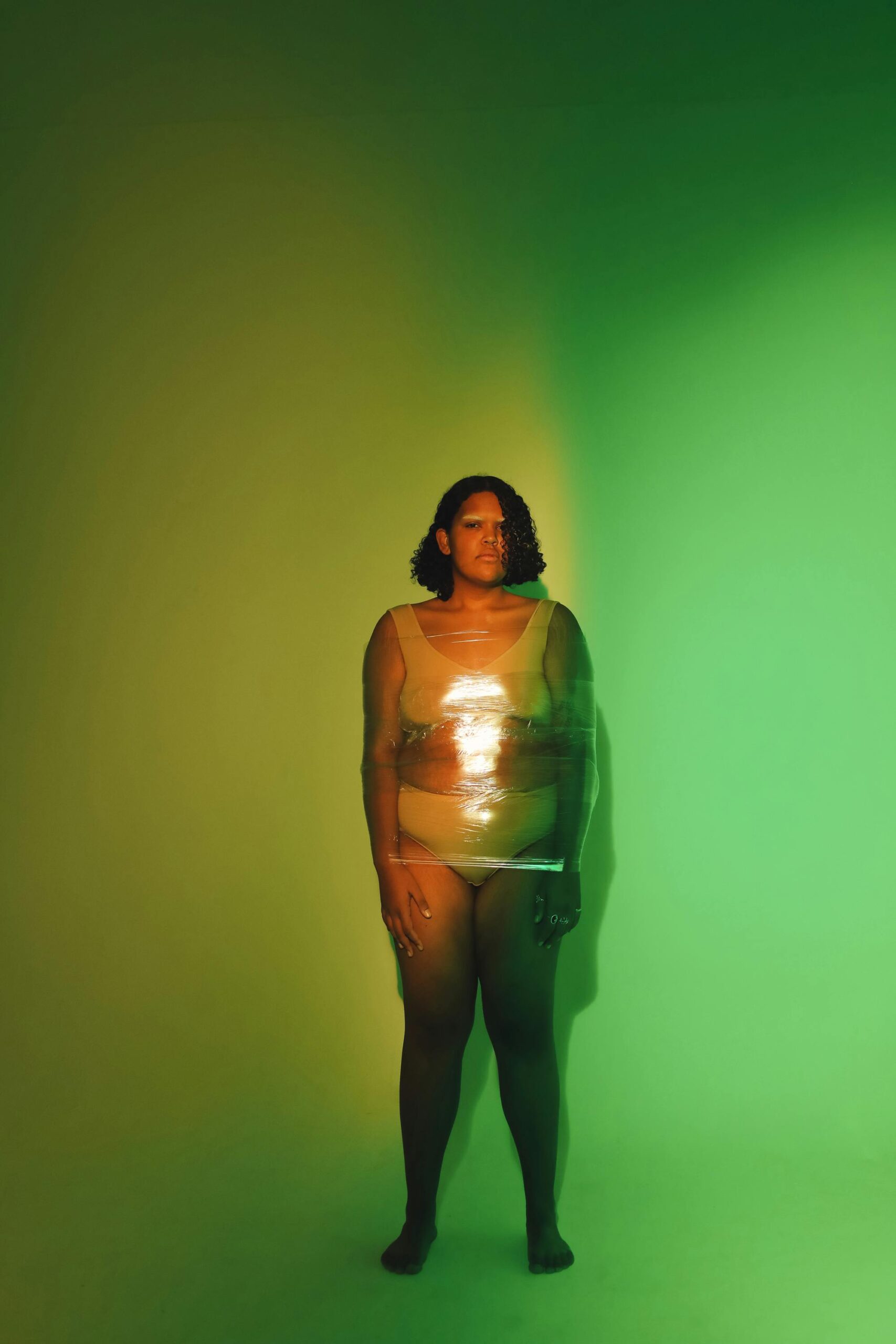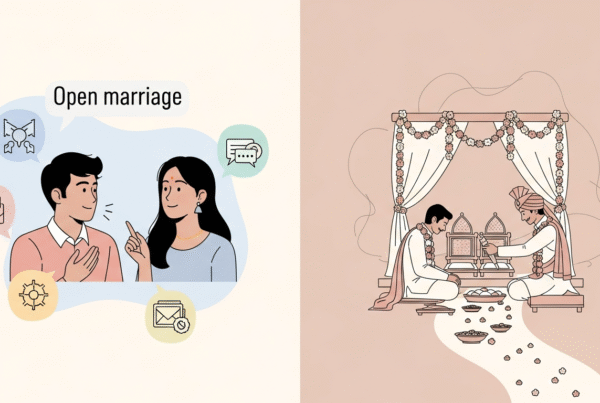I don’t feel beautiful. I am not proud of my stripes or my curves. I don’t know which parts of my body are its assets and which ones its liabilities. Not in terms of beauty anyway. I may sometimes quip about flaunting tits or pretty hair but it is not meaningful. The counter-points to all of these things are also true. I don’t feel ugly. I am not ashamed of my stripes or my curves. Any quips about my flabby arms or hairy legs aren’t meaningful either. It is not because I don’t care, it’s because I think all the years of trying to find my body within an adjective convinced me I was seeking something I didn’t even want. A while ago, I stopped thinking of my body in terms of beauty altogether.
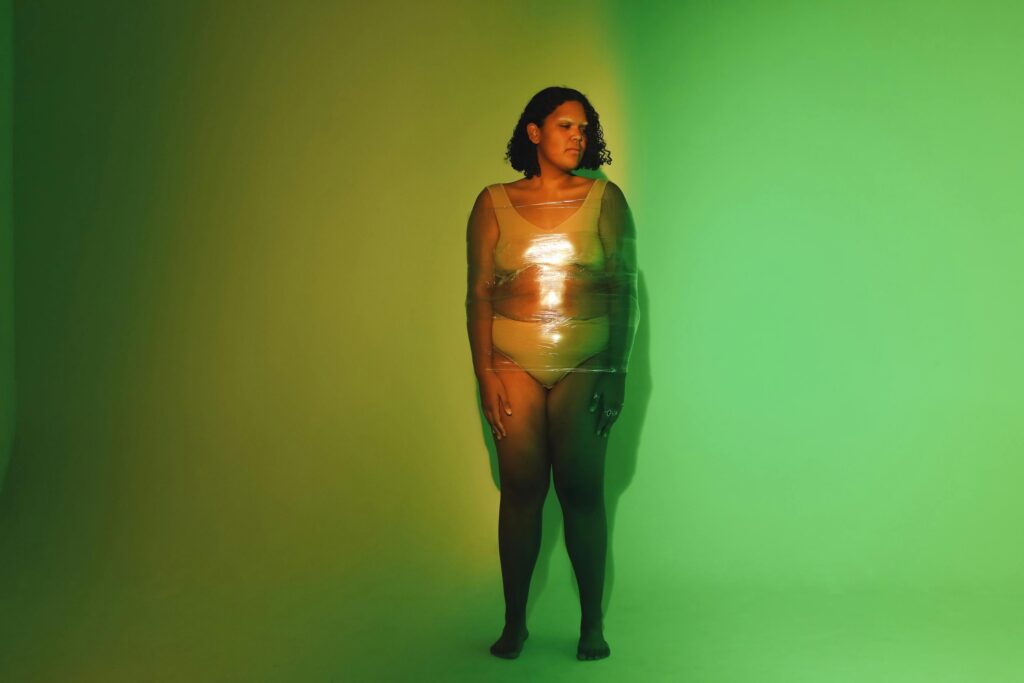 It was caused by something my mother said to me. She’s spent her entire life consoling herself about my weight. For the years when I was at my fittest (read: most thin), she wanted to see me the most. That’s not good or bad, it’s just the truth. It was the only period in my life when she liked everything I wore, she wanted everyone to meet me and she took pictures of me without making me angle myself to her specifications for hours. It’s needless to go into the details of the food-associated abuse to which she subjected me until I was an adult but until I was an adult I lived on a carefully-controlled, portioned diet as a consequence of which, I am still a little ashamed of desiring any food because I like how it tastes. Whether I like it or not, my mother had an influence on how I viewed myself because I saw my body *through* her. And *through* her, I was taught that I was ugly. She was always correcting how I looked, by draping me in fabrics that covered that I was fat, forcing me into narrow shoes because she believed I have freakishly large feet (they are not, and I didn’t even know that until I was 22). She still buys me clothes in sizes she wishes I would be. She’s still waiting for me to become a swan, but perhaps, over the years, her resolve has been wounded. So, a while ago, she said to me:
It was caused by something my mother said to me. She’s spent her entire life consoling herself about my weight. For the years when I was at my fittest (read: most thin), she wanted to see me the most. That’s not good or bad, it’s just the truth. It was the only period in my life when she liked everything I wore, she wanted everyone to meet me and she took pictures of me without making me angle myself to her specifications for hours. It’s needless to go into the details of the food-associated abuse to which she subjected me until I was an adult but until I was an adult I lived on a carefully-controlled, portioned diet as a consequence of which, I am still a little ashamed of desiring any food because I like how it tastes. Whether I like it or not, my mother had an influence on how I viewed myself because I saw my body *through* her. And *through* her, I was taught that I was ugly. She was always correcting how I looked, by draping me in fabrics that covered that I was fat, forcing me into narrow shoes because she believed I have freakishly large feet (they are not, and I didn’t even know that until I was 22). She still buys me clothes in sizes she wishes I would be. She’s still waiting for me to become a swan, but perhaps, over the years, her resolve has been wounded. So, a while ago, she said to me:
“*You know it’s okay that you are fat, you still have such a pretty face and such beautiful hair, it’s okay that you are fat but you should take care of yourself, at least. Even if a person is fat, they can wear nice clothes and go to the salon, do your nails, wear nice jewellery. You can still pamper yourself even if you are fat. I am sure your husband would appreciate it.*”
It was a loaded monologue, but she truly believed she was helping me somehow. It made me think about my body and what I was trying to achieve through it. In general, I am very fitness focused, I take care of my *insides* to a reasonable extent. I workout, I meditate, I eat nutritious food, I move around a lot, I rest. I am also destructive in some ways, I smoke cigarettes and weed, I enjoy recreational scarring, I don’t sleep very well and I have, quite probably, a lifelong predilection to beatings and pain. I’m not saying *masochism* is destructive, not with any connotation anyway, I am just saying, you get beaten the fuck up for twenty or thirty years and there will probably be some less than ideal consequences to your body (and I make this statement while it is still a belief, I am investigating, since a few years, the consequences of long-term masochism and how they apply to me, but I don’t have definitive answers yet). I view my body in very functional terms but I guess, I am not immune to the desire to be *beautiful*.
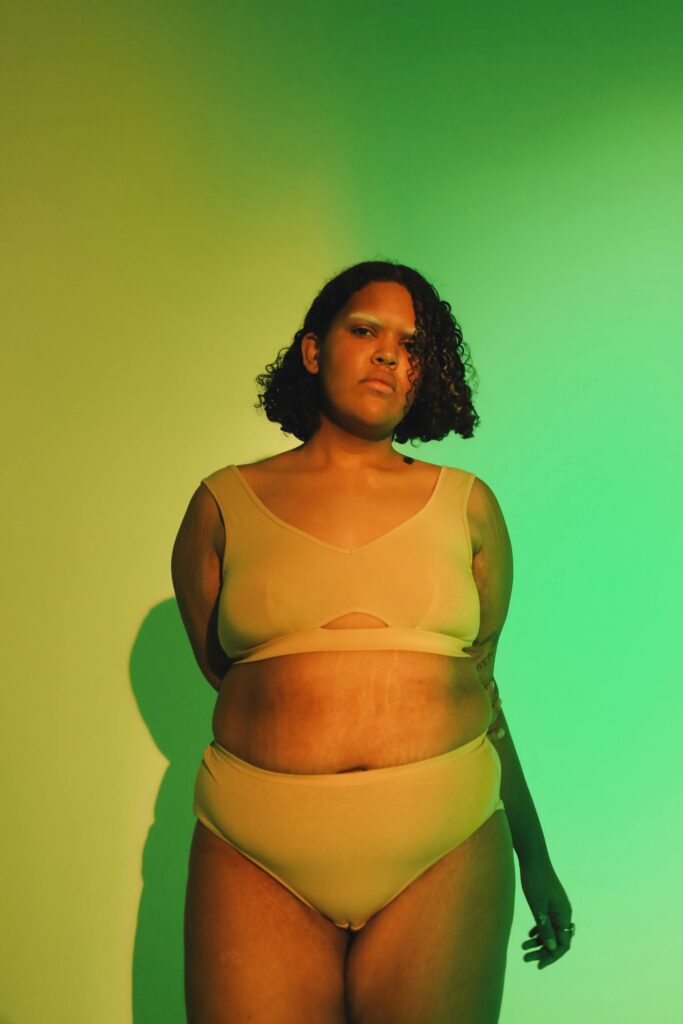 And so maybe, to a certain extent, I bought into the narrative. You know the narrative? There is a social narrative embedded within the things my mother said to me. It gave me pause about how I was viewing my body. There is an idea that we should *love* our flaws. We should *love* our bodies *despite* our insecurities. We should seek beauty in repair, we should *care* for ourselves through rituals of beauty as a means of reinforcing our value to ourselves. In that, somewhere, is the idea that beautifying yourself—by means of flattering clothing, plucked chin hair and blow-dried hair—is equal to loving oneself. I don’t begrudge anyone their belief system, but it’s not how I want to see myself. For me, the problem lies in the fact that I have to identify a flaw, in order to change my perspective about it to beauty and I am not sure I want to do that. Beauty feels a bit like objectification of myself and caring for myself by means of clothes and spas does not feel like love, it feels like purchasing social currency.
And so maybe, to a certain extent, I bought into the narrative. You know the narrative? There is a social narrative embedded within the things my mother said to me. It gave me pause about how I was viewing my body. There is an idea that we should *love* our flaws. We should *love* our bodies *despite* our insecurities. We should seek beauty in repair, we should *care* for ourselves through rituals of beauty as a means of reinforcing our value to ourselves. In that, somewhere, is the idea that beautifying yourself—by means of flattering clothing, plucked chin hair and blow-dried hair—is equal to loving oneself. I don’t begrudge anyone their belief system, but it’s not how I want to see myself. For me, the problem lies in the fact that I have to identify a flaw, in order to change my perspective about it to beauty and I am not sure I want to do that. Beauty feels a bit like objectification of myself and caring for myself by means of clothes and spas does not feel like love, it feels like purchasing social currency.
I don’t think my body is beautiful, I don’t think it’s ugly, I think it’s there. There are days I enjoy it very much and there are days when it feels uncomfortable, and a little alienating. There are states of being, like when I am immersed in a stretch, writhing in pain or gripped in arousal, that make me feel vital in a way that is delightful. There are others, like trying on trousers in a fluorescent changing room, when it feels sweaty and uncomfortable. There are things about it that invigorate me, like strength of my legs and flexibility of my hops, and there are things that enervate me, like the many complications of having a malfunctioning uterus. There are days when I am proud of things it can make me feel and there are days when I despise the things it makes me feel. But, for a long time now, there are no days when I am worrying about how it *looks*. In changing my view of my body, entirely to how it feels, I see much more clearly, my concept of beauty.
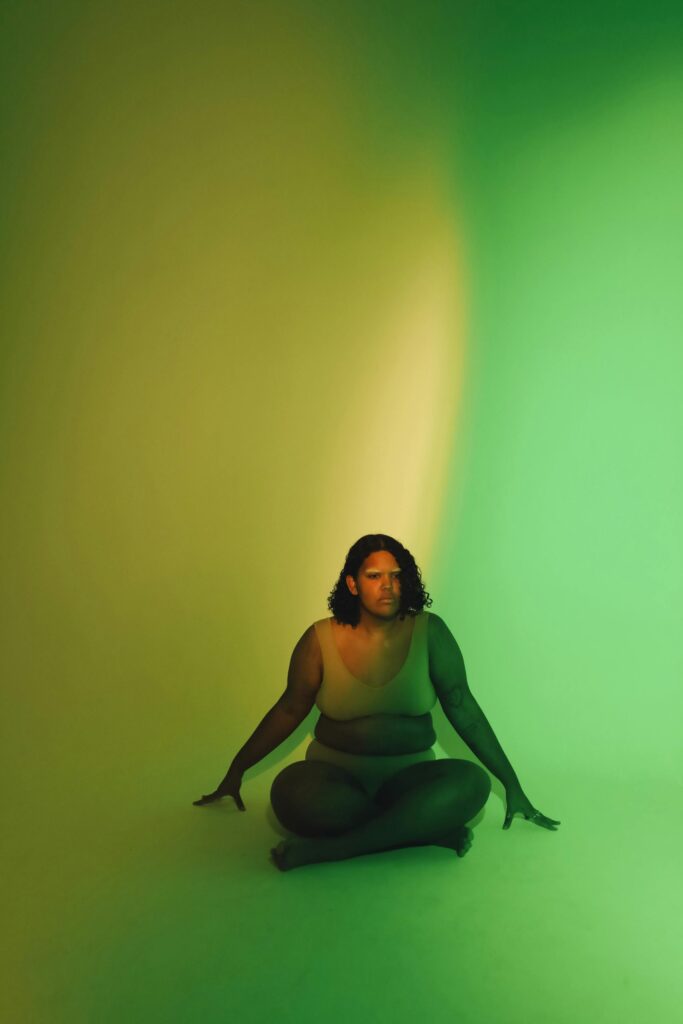 I find beauty in expertly-crafted sentences that convey nothing of consequence to the plot, but encapsulate everything about the story. I find it in the moments when a woman stands up to society. I find it in dusty, old heirlooms that are unearthed from the homes of the dead.
I find beauty in expertly-crafted sentences that convey nothing of consequence to the plot, but encapsulate everything about the story. I find it in the moments when a woman stands up to society. I find it in dusty, old heirlooms that are unearthed from the homes of the dead.
Sometimes, it feels like, all my life, I have had my beauty measured in terms of how much of it I owe to other people. In my mother’s reminder that my husband would enjoy my beautification, lay the reminder that many rituals of self-care are really processes of ornamentation, and while I am certain there are many people for whom they genuinely feel good and are therefore actually processes of care, for me they are reminders that I have to do things to myself that I do not enjoy in order to compensate for not looking like an ideal. That I deserve to be loved less, respected less, seen as less “healthy,” if I don’t love my body through the very narrow process of decorating its cracks in gold.
But sometimes, those things aren’t cracks, they’re life. They aren’t damage, they’re changes. I don’t have to think of everything as beautiful. I don’t have to love everything about myself. I am not in a race to perfection. I want to feel my body, I want it to feel like it’s mine, like I am truly in there. I want to know how it feels today, and respect how it felt a decade ago, and discover how it will feel a decade from now.
My body deserves a relationship with me, not just an adjective.
Written by Ancilla


